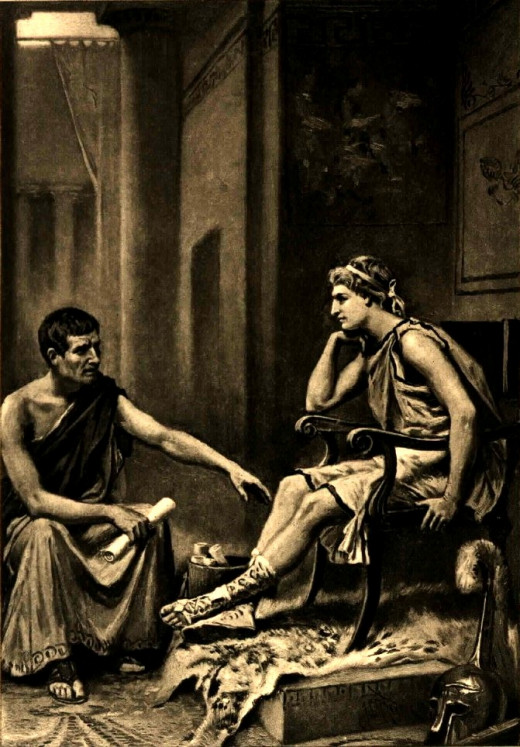WWAF? (Who Would Aristotle 'Friend'?)

Aristotle, one of history’s finest minds, is well known for his works on logic, politics, and rhetoric. Less known is his in-depth treatment of friendship found in the eighth book of Nicomachean Ethics.
To Aristotle, the ethical life is one that is marked by ‘happiness’, and friends are an important part of being happy. “Happy” in this sense is not a fleeting emotional state which is present one moment and gone the next. Rather, a happy life is one in which is complete: the individual is satisfied knowing that his life is well-lived, and lacks nothing which would make it better. It is not created by the ‘stuff’ one owns. But then again, the happy person is not beaten down by pains, misfortunes, and disappointments which will befall everyone sooner or later.
Friendships are a necessary component of that well-lived, happy life:“Without friends no one would choose to live, though he had all other goods” (1155a 5). Aristotle declares that having friends is even more important than having justice. Because “when men are friends they have no need of justice. But the man who is ‘just’ still needs friends” (1155a 25).
Three Types of Friends
Aristotle divides friends into three distinct categories. All are based on mutual affection, but each type has a different motivation for friendship.
1.Friendship of Pleasure - In this type of relationship, two become friends because of a common interest. To Aristotle, this type of friendship appeals to those who “pursue what is pleasant to themselves and what is immediately before them” (1156a 30). Ultimately these relationships are formed because each ‘friend’ really seeks his or her own pleasure. “It is not for their character that men love ready-witted people, but because they find them pleasant” (1156a10).” When a person’s interests change, the friendship typically dissolved.
2. Friendship of Usefulness - This is a friendship which exists because at least one of the acquaintances derives a benefit from the relationship: “It is not because he is a particular man that a person is befriended. Rather it is because he provides a particular good or pleasure” (1156a15). This could be a workplace relationship in which one or both individuals see a benefit to maintaining pleasantries. Its largely a friendship based on circumstance. Once the circumstances change, the friendship fades.
3. Friendship of Character - Aristotle describes this as a “perfect friendship”. It stems from two people who see the best for the other and have remained friends through trials and for a long period of time. It is a relationship that is unselfish - it seeks the best for the other regardless of what personal gain may result. Accordingly, this type of friendship is rare: “It is natural that such friendships should be infrequent; for such men are rare” (1156b 25).
Aristotle’s Facebook Friends
Aristotle would welcome all three ‘friend’ types if he had a Facebook account. But he would recognize the first two for what they are: temporary relationships designed to fill a self-oriented need. What is easily gained is also readily abandoned. Much of what joins people together are shared interests and viewpoints. When the mutual interests are broken, the relationship can become tedious and tiresome. In that situation, Aristotle would say that it is time to respectfully dissolve the relationship:
“The useful is not permanent but is always changing. Thus when the motive of the friendship is done away, the friendship is dissolved, inasmuch as it existed only for the ends in question” (1156a 20).
And:
“There is nothing strange in breaking off a friendship based on utility or pleasure, when our friends no longer have these attributes. For it was of these attributes that we were the friends; and when these have failed it is reasonable to love no longer” (1165b 1).
Just because a friendship dissolves, it does not logically follow that two individuals dislike each other. Rather it shows the maturity of each when they recognize it is time to move on. Thus Aristotle would likely recommend a well-pruned friend list.
Aristotle would also recognize that friendships built upon character and virtue are significantly different from those of pleasure or utility. Virtuous friendships are durable: they outlive changes in taste and preference, as well as changes in setting. No matter where life takes such a person, the friend of character can be found encouraging, admonishing, and blessing his or her friend. Time and distance does not alter the fundamental nature of the relationship.
These friends might have a place on Aristotle’s Facebook friend list. But more poignant, they would have a place in his heart and mind.



